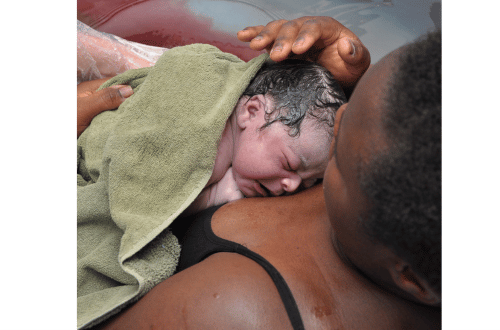Innovation boosts survival rates for pre-term babies at Whittington Health

12 Mar 2024
Full story
The challenge clinicians face is that, while preterm babies benefit from delayed cord clamping, some of them also need resuscitation when they are born. With the baby is at its most vulnerable, the pressure is on for doctors to act quickly by clamping the cord so that they can give the baby any treatment they require. Not only does it feel counter-intuitive to delay clamping the cord, it goes against previously established practice. Chandrima Biswas, consultant obstetrician at Whittington Health NHS Trust, worked with the Trust’s neonatologists to adopt this new way of working.
Parents were also unaware of these benefits, so Whittington Health is currently introducing a perinatal passport, to empower them to ask for their baby to have delayed cord clamping at birth.
Within a year, more than two thirds of preterm babies are benefitting from this delay in clamping their umbilical cords, and parental satisfaction ratings for perinatal care had increased significantly.
More recently, Whittington Health has invested in a new piece of equipment, the Concord Birth Trolley, its first use in the UK. As it can be positioned closer to the baby, the resuscitation team and equipment at birth, it makes it easier for the birthing team to leave the cord intact and safely pause the clamping while monitoring and attending to the baby.
Chandrima Biswas said: “A recent review of 47 studies in the Lancet shows that deaths of pre-term babies can be prevented by delaying clamping the umbilical cord, even by just a couple of minutes. The evidence shows that this new approach will help to reduce this risk for local people.”
Sharon D’Souza, consultant paediatrician at Whittington Health, added: “Delayed cord clamping has been associated with significant neonatal benefits in preterm infants - this includes a reduction in significant complications such as intraventricular haemorrhage and necrotising enterocolitis - with improvement in both survival and neurodevelopmental outcomes secondary to this. We are very pleased to be part of this initiative, working collaboratively with our obstetric colleagues.”
Chandrima has also been working with colleagues across the other trusts in North Central London to make sure that Whittington babies are not the only ones to benefit locally.

